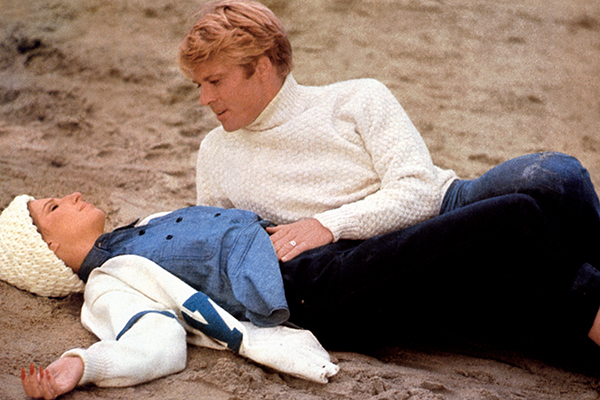Americans
Sydney Pollack's heroes win at losing
PostED ON OCTOBER 12
What if Sydney Pollack, underneath all his narrative lyricism, was actually the filmmaker of melancholy? His heroes fall apart in order to be better reborn amidst an America in crisis. Analysis.
Sydney Pollack's films are like dreams that you think can come true, only to have them fade away. Perhaps that is why they are unforgettable. Perhaps that is why the best works of this deeply romantic fiction filmmaker feature heroes who are willing to lose, supremely. Sydney Pollack, an energetic and likeable director, is paradoxically the filmmaker of melancholy, or specifically male melancholy, a notion that is all the more interesting when it is tied to the illusion of the (in)famous American dream.
"I'm a very good loser", Katie (Barbra Streisand in distraught mode) tells Hubbell (Robert Redford on the verge of tears) in 1973’s The Way We Were. The poignant allure of this great melodrama lies in the fact that the couple knows in advance that their love affair won't work out. They go all the way anyway, generating a certain melancholy that perpetually hangs over them... One can even speak of a real fatality in the magnificent This Property is Condemned (1966). Alva (Natalie Wood, charming and crazy) lives her love story, which she feels is doomed, with Owen (played by who else? Redford). This is not surprising when you consider that the movie is adapted from the writings of two masters of sorrow and loss, Tennessee Williams and Francis Ford Coppola.
Jeremiah Johnson (Redford, a bearded philosopher, 1972) seems rather unfazed by the loss of his wife and child. The theme of the transience of life haunts Pollack's stories. "I don't think you'll live very long," Kathy (Faye Dunaway, emotional) says to Joseph (Redford, vibrant) before spending a brief night together in Three Days of the Condor (1975). Pollack imposes a slow rhythm on his heroes, to illustrate that they feel everything deeply, in films free of the modern technological reality so dear to American cinema. No car in Pollack's films! Even Bobby Deerfield (Al Pacino, untalkative, 1977), a professional racer, is only brought to life when he starts to follow a girl (Marthe Keller, enthusiastic) who is about to die. The Electric Horseman (Redford, nomadic, 1979) makes use of the rhythm of a galloping horse to tell a story with a journalist (Jane Fonda, pragmatic) during an escape. Their melancholic farewell is written in advance…
 The Way We Were, 1973
The Way We Were, 1973
"It's just a cowboy. Sometimes he loses the best part of himself", Willy Nelson whispers to the journalist in The Electric Horseman. Pollack's cinema shows not only the romantic doom between two people who love each other but portrays the loss of a national ideal that never existed! It is the whole history of the United States. There is the loss of territory tainted by man in Jeremiah Johnson, scripted by the colourful and unbridled John Milius. We find this nostalgia for a fantasised Eden of the Wild West in The Electric Horseman, which starts in the heart of Las Vegas, a place of total human aberration. Pollack's heroes are lost, polluted by the consumer society represented by advertising and the media. It is a deathly cold Bobby Deerfield who shoots ads for watches and alcohol, it is an electric horseman who becomes a walking ad for a brand of cereal. Advertising, the media, newspapers, it's all an illusion that corrupts human beings in an idealized America. The toxic ghosts of the great American endeavours confront Pollack's heroes, who are forced to mourn their homeland, to lose it, and worse, to do so in silence because no one will listen. It is the ending of Three Days of the Condor, where the Watergate affair looms large. It is the Great Depression that ravages in This Property is Condemned, McCarthyism in The Way We Were. Pollack's heroes learn not to win, but to come alive.
Virginie Apiou

